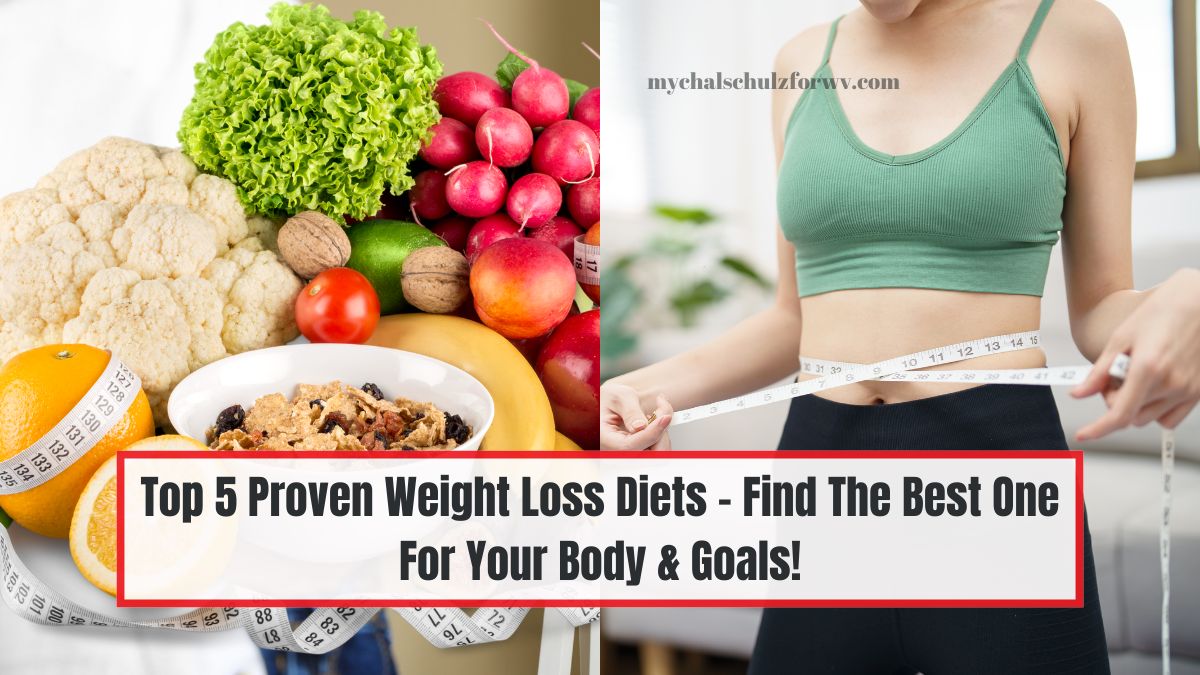Embarking on a weight loss journey requires selecting a diet that aligns with your health goals, lifestyle, and personal preferences.
With numerous diets available, it’s essential to understand the benefits and considerations of each to make an informed decision.
Below, we explore the top five proven weight loss diets, providing detailed insights to help you determine which might be the best fit for you.
1. Mediterranean Diet
The Mediterranean Diet emphasizes consuming fruits, vegetables, whole grains, legumes, nuts, and healthy fats like olive oil, while limiting red meat, processed foods, and sweets.
This diet is renowned for its heart-healthy benefits and has consistently ranked as the top diet in various health reports.
Benefits:
- Heart Health: Associated with reduced risk of cardiovascular diseases.
- Weight Management: Encourages balanced eating patterns that can lead to sustainable weight loss.
- Diabetes Prevention: May lower the risk of type 2 diabetes.
Considerations:
- Requires commitment to meal preparation and planning.
- May involve higher grocery costs due to fresh produce and quality oils.
2. DASH Diet
The Dietary Approaches to Stop Hypertension (DASH) diet focuses on reducing sodium intake and emphasizes fruits, vegetables, whole grains, and low-fat dairy products. Originally designed to combat high blood pressure, it has also been effective for weight loss.
Benefits:
- Blood Pressure Reduction: Clinically proven to lower blood pressure levels.
- Nutrient-Rich: Provides essential nutrients like potassium, calcium, and magnesium.
- Weight Loss: Promotes healthy eating habits that can lead to weight reduction.
Considerations:
- May require significant dietary changes, especially for those accustomed to high-sodium diets.
- Needs careful monitoring of sodium intake.
3. Flexitarian Diet
The Flexitarian Diet is a flexible vegetarian approach that allows occasional meat and fish consumption. It focuses on plant-based foods while providing the flexibility to include animal products in moderation.
Benefits:
- Flexibility: Allows for occasional indulgence in meat or fish.
- Nutrient-Dense: Encourages a high intake of fruits, vegetables, and whole grains.
- Weight Loss: Associated with lower body weight and reduced risk of chronic diseases.
Considerations:
- Requires planning to ensure adequate protein and nutrient intake.
- May involve learning new plant-based recipes and cooking methods.
4. Intermittent Fasting
Intermittent Fasting (IF) involves cycling between periods of eating and fasting. Common methods include the 16/8 approach (16 hours fasting, 8 hours eating) and the 5:2 method (normal eating five days a week, restricted calories on two days).
Benefits:
- Weight Loss: Can lead to reduced calorie intake and fat loss.
- Metabolic Health: May improve insulin sensitivity and reduce inflammation.
- Simplicity: Focuses on when to eat rather than what to eat.
Considerations:
- Not suitable for everyone, especially those with certain medical conditions.
- May lead to overeating during eating periods if not monitored.
5. High-Protein Diet
A High-Protein Diet emphasizes increased protein intake while reducing carbohydrates and fats. This approach aims to promote satiety, preserve muscle mass, and boost metabolism.
Benefits:
- Appetite Control: Protein promotes feelings of fullness, reducing overall calorie intake.
- Muscle Preservation: Supports muscle maintenance during weight loss.
- Metabolic Boost: May increase calorie burning through the thermic effect of food.
Considerations:
- Potential strain on kidneys if pre-existing conditions exist.
- Requires careful selection of protein sources to avoid excessive saturated fats.
| Diet | Key Features | Primary Benefits | Considerations |
|---|---|---|---|
| Mediterranean | Emphasizes fruits, vegetables, whole grains, and healthy fats | Heart health, weight management, diabetes prevention | Requires meal planning and potential higher costs |
| DASH | Focuses on reducing sodium, includes fruits, vegetables, and low-fat dairy | Lowers blood pressure, nutrient-rich, weight loss | Significant dietary changes, monitoring sodium intake |
| Flexitarian | Primarily plant-based with occasional meat/fish | Flexibility, nutrient-dense, weight loss | Ensuring adequate protein, learning new recipes |
| Intermittent Fasting | Alternates between eating and fasting periods | Weight loss, metabolic health, simplicity | Not suitable for everyone, risk of overeating |
| High-Protein | Increased protein, reduced carbs and fats | Appetite control, muscle preservation, metabolic boost | Potential kidney strain, careful protein source selection |
Choosing the right weight loss diet involves considering your health goals, lifestyle, and personal preferences. It’s essential to select a diet that is sustainable and aligns with your nutritional needs.
Consulting with a healthcare provider or registered dietitian can provide personalized guidance to ensure the diet you choose is safe and effective for your individual circumstances.
FAQs
Which weight loss diet works the fastest?
Intermittent Fasting and High-Protein Diets often show quicker results, but long-term sustainability matters most.
Is it safe to follow a strict diet for weight loss?
Extreme restrictions can lead to nutrient deficiencies. Choose a balanced diet that suits your health needs.
Can I mix different diet plans?
Yes, combining elements (e.g., Mediterranean + Intermittent Fasting) can be effective if done correctly and sustainably.
